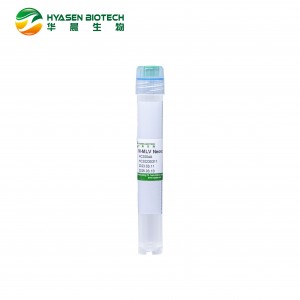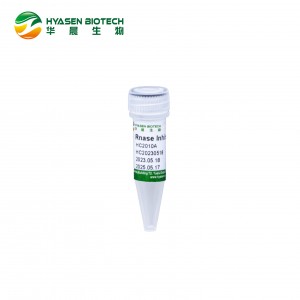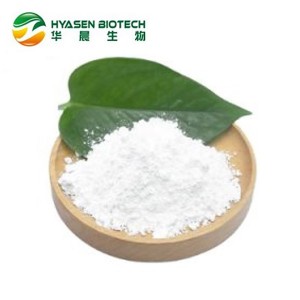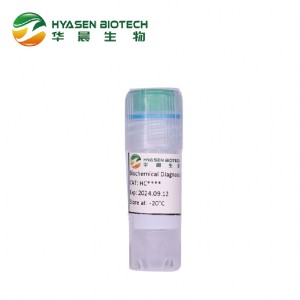
Fast RT-qPCR Probe Premix-UNG
One Step Fast RT-qPCR Probe Kit U+ is designed for real-time RT-PCR using probe detection without nucleic acid extraction and purification. It contains rapid amplification reverse transcriptase and DNA polymerase obtained through genetic modification screening, can complete 45 cycles of amplification within 20-40 minutes.This product has strong inhibitor tolerance and can be used for RNA direct amplification detection of samples such as throat swabs, anticoagulated whole blood, plasma, and serum without nucleic acid extraction and purification. This reagent uses an optimized formula of qPCR-specific Buffer and UNG/dUTP anti-contamination system, which can effectively prevent false positive amplification caused by PCR product residue and aerosol contamination.
Prodct Components
10×Fast Direct RTase/UNG Mix IV
2×Fast Direct RT Premix Buffer IV (dUTP)
Storage Conditions
The product is shipped with dry ice and can be stored at -20℃ for long time, and 4℃ for 3 months.
Instructions
1. Reaction System
|
Components |
25μL System |
50μL System |
Concentration |
|
10×Fast Direct RTase/UNG Mix IV |
12.5μL |
25μL |
1× |
|
2×Fast Direct RT Premix Buffer IV (dUTP) |
2.5μL |
5μL |
1× |
|
25×Primer-Probe Mix |
1μL |
2μL |
1× |
|
Samples |
— |
— |
— |
|
ddH2O |
up to 25μL |
up to 50μL |
— |
1. When using the ordinary PCR program for amplification, a final primer concentration of 0.2 uM can usually obtain better results. When the reaction performance is poor, the primer concentration can be adjusted within the range of 0.2~1uM. Usually, the probe concentration can be optimized within the range of 0.1~0.3uM. Concentration gradient experiments can be performed to find the best combination of primers and probes.
2. When using the rapid PCR program for amplification, appropriately increasing the primer probe concentration may obtain better amplification results, and the primer probe ratio should be optimized.
3.The types, contents and copy numbers of target genes contained in different types of biological samples are different; different types of sample preservation solutions (such as swab preservation solutions) also have different effects on the amplification reaction. Therefore, the optimal sample loading in the reaction system should be determined according to the actual situation such as sample type and detection sensitivity requirements. If necessary, the sample can be diluted with nuclease-free water or TE Buffer before loading. The recommended loading volume is as follows:
|
Sample type |
50μL system |
Maximum loading ratio |
|
Anticoagulated whole blood |
2.5μL |
5% |
|
Plasma |
10 μL |
30% |
|
Serum |
10 μL |
30% |
|
Swab |
10 μL |
20% |
|
20% fecal suspension |
0.5 μL |
1% |














